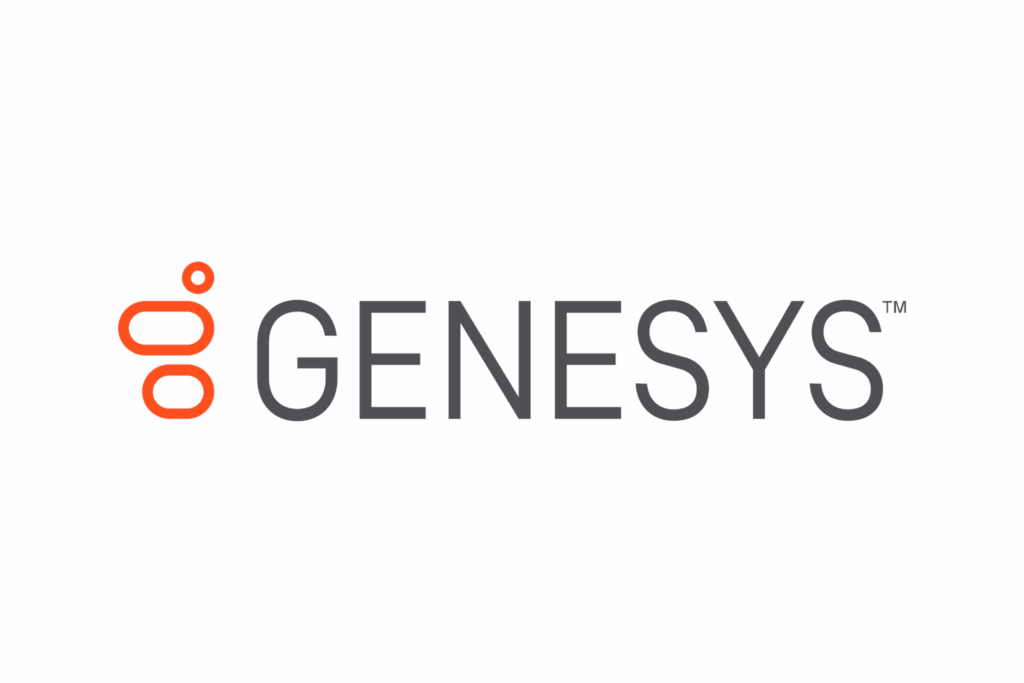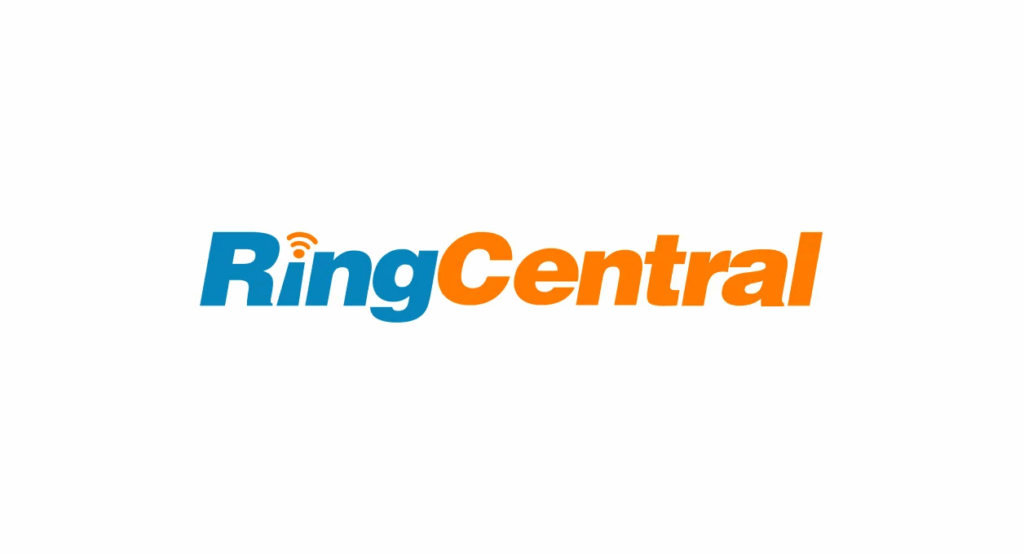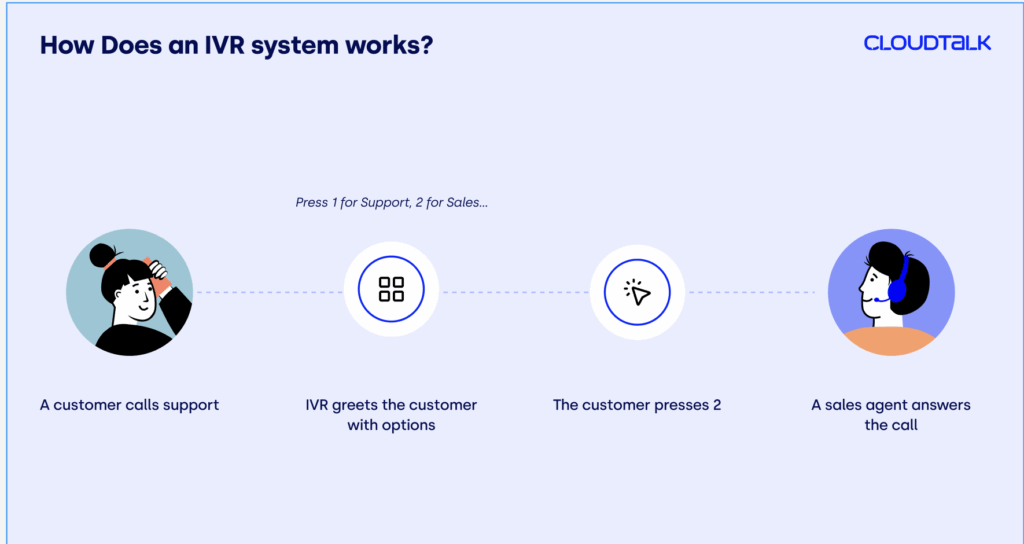Top 8 IVR Service Providers for Every Business Need in 2025

Stuck in a never-ending call queue, listening to the same hold music, Sarah grows more frustrated by the second. Will she ever get the help she needs? Tired of waiting, she hangs up—and just like that, you’ve lost her as a customer.
The truth is, nearly 80% of customers prefer solving issues without a live agent. So why risk long hold times when a smart IVR solution can help instantly?
However, with so many IVR solution providers out there, the right choice depends on your business needs. To help, we’ve reviewed the best IVR service providers for 2025, based on scalability, pricing, integrations, automation, and analytics, so you don’t lose customers like Sarah.
Key Takeaways
- Interactive Voice Response systems automate call handling with recorded menus and speech IVR technologies, efficiently routing callers and reducing wait times.
- 67% of customers are more likely to do business again after a positive communication experience, highlighting the importance of an efficient IVR system.
- IVR automation reduces costs, boosts productivity, and enhances customer satisfaction by providing instant responses, handling common inquiries, and offering 24/7 support.
- Best practices for IVR setup include simplifying menus, training your team on call flows, using analytics, and regularly testing for the best IVR experience and efficiency.
- Choosing the right solution is key— IVR companies like CloudTalk offer AI-powered voice agents, real-time analytics, and customizable call flows for efficient customer service.
Don’t make people rage-hang up. Let your IVR do the heavy lifting.
What Is an Interactive Voice Response (IVR) System?
IVR (Interactive Voice Response) is a system that helps businesses handle phone calls automatically, without needing a person to answer right away.
When someone calls, instead of speaking directly to an agent, they hear a recorded menu of options (like “Press 1 to check your balance, Press 2 to speak with customer support”). The caller can then use their phone’s keypad or simply speak to choose what they need.

The 8 Best IVR Service Providers for Your Business in 2025
With so many IVR software solutions available in , selecting the right one can be overwhelming. To make the decision easier, we’ve put together a list of the 8 best IVR service solutions, helping you find the perfect fit for your business needs.
The comparison table below provides a quick overview of all 8 platforms—or you can skip ahead to the in-depth reviews.
IVR Software
Key Features
Starting Price
CloudTalk
Intelligent Call Routing, Multi-Level Menus, AI Voice Agent, Real-Time Analytics
$19/user/month
MightyCall
Multi-Level IVR, Customizable Call Routing, Call Queueing
$15/user/month
Twilio
Visual Flow Builder, AI and Personalization Capabilities
Pay-as-you-go / Subscription-based
Genesys
Intelligent Call Routing, Omnichannel Integration, Drag-and-Drop Flow Builder
$75/user/month
NICE CXone Mpower
Advanced Call Routing, Speech Recognition and Conversational AI, CRM and Third-Party Integration
$71/user/month
RingCentral
Visual Ivr Builder, Customizable Multi-Level Menus, Flexible Call Routing
$20/user/month
Five9
Visual Ivr, Omnichannel Support, Intelligent Virtual Agents (Iva), Ai Capabilities.
119/user/month
Talkdesk
Virtual Agent, Conversational Ivr, Automatic Call Summaries, Integrations
$85/user/month
#1 CloudTalk: Best for SMBs

Trusted by 4,000+ businesses, CloudTalk stands out as an IVR software with advanced AI features, customizable call flows, and real-time analytics—all in a scalable, cloud-based IVR platform.
It integrates with 35+ tools and offers an open API for global workflow customization, including local numbers in over 160 countries. With multi-language support, 99.99% uptime, and a user-friendly interface, CloudTalk helps businesses connect with customers efficiently and reliably.
Best for
SMBs seeking a flexible, scalable, and feature-rich phone system—especially those aiming to improve customer experience, streamline workflows, and support growth without heavy upfront investment or technical complexity
Key Features
- AI Voice Agent (A.K.A CeTe): Qualifies leads, confirm meetings, send reminders, gather feedback, and more—operating 24/7 with real-time escalation to human agents when needed.
- Intelligent Call Routing: Routes calls based on customer input, agent skill set, geographic location, customer data, and VIP status, ensuring callers reach the right person quickly and efficiently.
- Customizable Multi-Level Menus: Allows businesses to create multi-level IVR menus and call flows, enabling complex routing logic and tailored customer journeys without coding.
Top Integrations
pros & Cons
Pros:
- Ease of use: The platform is intuitive and easy to navigate, allowing for quick adoption without a steep learning curve.
- Scalability: CloudTalk allows businesses to easily add new users and expand their capabilities as they grow.
- Cost-effective: CloudTalk is budget-friendly compared to competitors while offering advanced features.
Cons:
- Limited offline functionality: CloudTalk relies heavily on a stable internet connection. Any downtime or poor internet quality can disrupt its functionality.
- No video conferencing: It can be a drawback for businesses that rely on this communication channel.
Pricing
CloudTalk offers four pricing plans, each with its own set of features:
- Lite (19/user/month]): Includes unlimited US & Canada calling, business SMS, International Numbers, Call Recording, basic call analytics, and 24/7 email/chat support.
- Essential (29/user/month): It offers 1,000 domestic outbound minutes, 24/7 live support, advanced analytics, IVR, Skill-Based routing, Integrations + Open API.
- Expert (49/user/month): It includes features like Power Dialer, Smart Dialer, VIP Queues, WhatsApp Inbound & Outbound Messages, and Call Monitoring.
- Custom (Varies): This plan is tailored for businesses with unique needs and includes custom onboarding, unlimited outbound calls with flat rates, enterprise-level security, and developer support.
G2 Reviews
Rating: 4.4/5
Users praise CloudTalk’s IVR for its intuitive interface, easy-to-customize call flows, and smooth CRM integrations with tools like HubSpot and Salesforce.
#2 MightyCall

MightyCall is known for its user-friendly interface and quick setup, making it easy for businesses to implement and manage a VoIP IVR system without technical expertise. It offers multi-level IVR, Call Routing, Call Recording, and custom greetings to enhance customer experiences. The cloud-based platform is affordable, scalable, and mobile-friendly, with strong customer support.
Best for
SMBs seeking effective call management at a competitive price.
Key Features
- Multi-level IVR: Offers a visual, drag-and-drop interface for building IVR call flows. Users can easily set up multi-level menus, call routing rules, and custom greetings.
- Customizable Call Routing: Calls can be routed based on caller type (e.g., regular, VIP, or block list), time of day, or specific menu selections.
- Call Queueing: Includes advanced call queueing to manage high call volumes, reducing wait times, and improving customer satisfaction.
Top Integrations
- HubSpot
- Salesforce
- Zoho CRM
pros & Cons
Pros:
- User-friendly interface
- Affordability
- Excellent customer support
Cons:
Common Issues Mentioned by Customers on G2
- Call Issues
(such as missing incoming calls or difficulty with call transfers)
- System Bugs
(such as the dial pad not working) - Call Quality Problems
(such as dropped calls)
Pricing
MightyCall offers four subscription plans:
- Core Plan ($15/user/month)
- Pro Plan ($23/user/month)
- Power Plan ($30/user/month)
- Enterprise Plan ($50/user/month)
G2 Reviews
Rating: 4.5/5
Users highlight MightyCall’s IVR for its ease of setup, customization, and ability to automate call routing, improving efficiency and integration with other business tools.
#3 Twilio

Twilio stands out in the IVR market with advanced features, ease of use, and flexibility for both technical and non-technical users. Its low-code, drag-and-drop builder, pre-built templates, AI personalization, and omnichannel integration enable businesses to create natural, customer-centric experiences.
Best for
While smaller businesses benefit from its flexibility, enterprises gain the most from its scalability and AI-driven features.
Key Features
- Visual Flow Builder
- AI and Personalization Capabilities (such as Personalized IVR)
- International Numbers (across 100+ countries)
Top Integrations
- Salesforce
- HubSpot
- Zendesk
pros & Cons
Pros:
- Easy Integrations
- Ease Of Use
- Reliable APIs and communications
Cons:
Common Issues Mentioned by Customers on G2
- Customer Support
(users mention slow response times) - High Costs For Small Businesses Or Low-Usage Users
- Complex Advanced Features
(setting up advanced configurations can be challenging)
Pricing
Twilio offers two pricing models:
- Subscriptions: Charges monthly fees for phone numbers, A2P 10DLC, call recordings (free up to 10,000 mins, then $0.0005/min), short codes, premium support, and Enterprise plans with advanced features.
- Pay-as-you-go: Most Twilio services use pay-as-you-go pricing in USD with taxes and volume discounts, but exact rates aren’t listed publicly.
G2 Reviews
Rating: 4.2/5
Users highlight that Twilio’s IVR is easy to implement, with strong text-to-speech and call routing features. However, some find it complex for non-developers and limited for typical business needs without custom coding.
#4 Genesys

Genesys stands out as an IVR software provider due to its AI-powered conversational capabilities, seamless omnichannel integration, flexible cloud-based design, and strong focus on personalization and analytics.
Best for
Genesys IVR is especially popular among mid-sized organizations but is best suited for scaling up in large, complex contact centers.
Key Features
- Intelligent Call Routing
- Omnichannel Integration (connects IVR with chat, web, SMS, and messaging),
- Drag-and-Drop Flow Builder
Top Integrations
- Salesforce
- Microsoft Dynamics
- Zendesk
pros & Cons
Pros:
- User-friendly interface
- Regular updates and new features
- Automation and AI
Cons:
Common Issues Mentioned by Customers on G2
- Limited features
- High Cost
- Reporting IVR Tools (often seen as limited compared to what competitors offer)
Pricing
Genesys offers three main pricing plans with different features:
- Cloud CX 1 ($75/user/month)
- Cloud CX 2 ($115/user/month)
- Cloud CX 3 ($155/user/month)
G2 Reviews
Rating: 4.3/5
Users appreciate the platform’s flexibility in building and customizing IVR calling systems to meet specific business needs.
#5 NICE CXone Mpower

NICE stands out with advanced AI and natural language processing, enabling more intuitive customer interactions. Its unified cloud platform supports voice, chat, and email, improving customer experience. Scalable and flexible, it suits businesses of all sizes. With seamless integrations and an intuitive interface, it enhances operational efficiency.
Best for
Call centers operating in complex or highly regulated environments.
Key Features
- Advanced Call Routing
- Speech Recognition and Conversational AI
- CRM and Third-Party Integration
Top Integrations
- Salesforce
- Microsoft Dynamics 365
- Oracle Service Cloud
pros & Cons
Pros:
- Ease of use
- Efficiency and Reliability (reliable cloud-based infrastructure)
- Reliable customer support
Cons:
Common Issues Mentioned by Customers on G2
- Call Issues
(such as calls dropping or not being picked up) - Technical Issues
(such as issues with the system freezing and delays) - Missing Features
(users feel the platform lacks certain features)
Pricing
NICE CXone offers six pricing plans:
- Digital Agent ($71/user/month)
- Voice Agent ($94/user/month)
- Omnichannel Agent ($110/user/month)
- Essential Suite ($135/user/month)
- Core Suite ($169/user/month)
- Complete Suite ($209/user/month)
G2 Reviews
Rating: 4.3/5
Users highlight the NICE CXone Mpower IVR system for its versatility, seamless integration, self-service capabilities, and reliability, but note a steep learning curve in advanced scripting.
#6 RingCentral

RingCentral stands out as an IVR software solution by combining advanced, customizable features with ease of use, strong integrations, and enterprise-level scalability—making it a top choice for businesses seeking to automate and enhance their customer communication.
Best for
Medium to large organizations, enterprises, and businesses expecting to scale or needing robust automation and integration.
Key Features
- Visual Drag-and-Drop IVR Builder
- Customizable Multi-Level Menus
- Flexible Call Routing
Top Integrations
- Salesforce
- Microsoft Dynamics
- Zendesk
pros & Cons
Pros:
- Affordable Pricing
- Collaborative Features (including file sharing and conferencing)
- Integration Capabilities (200+ integrations)
Cons:
Common Issues Mentioned by Customers on G2
- Reliance on Add-Ons (many features are locked behind more expensive paywalls)
- Missing Features (such as sales dialers and automation)
- Customer Support (based on testimonials from RingCentral’s review portals)
Pricing
Ringcentral offers three pricing plans:
- Core ($20/user/month)
- Advanced ($25/user/month)
- Ultra ($35/user/month)
G2 Reviews
Rating: 4/5
Users find RingCentral’s IVR easy to set up and helpful for managing call flows efficiently.
#7 Five9

Trusted by over 3,000 clients worldwide, Five9 stands out as an IVR software solution due to its blend of advanced AI-driven features, visual and mobile-friendly interfaces, deep integration capabilities, and a focus on both customer and agent experience.
Best for
Medium to large businesses, particularly those looking for advanced features like omnichannel communication and workforce management.
Key Features
- Visual IVR and Mobile Optimization
- Omnichannel Support (including voice, chat, social media, and email)
- Intelligent Virtual Agents (IVA) and AI Capabilities
Top Integrations
- Salesforce
- Microsoft Dynamics 365
- Oracle Service Cloud
pros & Cons
Pros:
- Ease of use
- Features (such as Call Routing, Call Recording, and IVR monitoring tools)
- Customer support (Known for being responsive and helpful)
Cons:
Common Issues Mentioned by Customers on G2
- Call Issues
(Some users experience call-related problems, such as call drop) - Missing Features
(Certain features are either unavailable or considered add-ons) - Complex Setup & Learning Curve
(especially for advanced features, workflows, and campaign setups)
Pricing
There are six plans available:
- Digital Plan ($119 per user/month)
- Core Plan ($119 per user/month)
- Premium Plan (Quote-based)
- Optimum Plan (Quote-based)
- Ultimate Plan (Quote-based)
G2 Reviews
Rating: 4.1/5
Many users appreciate the flexibility and ease of customization.
#8 Talkdesk

Talkdesk is used by over 1,800 companies worldwide and offers a user-friendly IVR design, AI-driven features, and advanced routing options for personalized customer service. It’s ideal for businesses focused on automation, agent support, and data-driven performance.
Best for
Businesses of all sizes, although the pricing is best suited for larger companies.
Key Features
- Virtual Agent (handles routine queries and collects caller data)
- Conversational IVR
- Automatic Summaries (generates post-call summaries using generative AI)
Top Integrations
- Slack
pros & Cons
Pros:
- Integration Capabilities (over 60 integrations)
- Enterprise-Ready (e.g., healthcare, finance, and government clouds are available).
- Security & Compliance (Offers HIPAA and GDPR compliance)
Cons:
- Starting Price (may be expensive for small businesses)
- Complex Setup
- Limited Access at Lower Tiers
Pricing
Talkdesk offers four pricing plans:
- CX Cloud Digital Essentials: ($85 per user/month)
- CX Cloud Essentials ($85 per user/month)
- CX Cloud Elevate ($115 per user/month
- CX Cloud Elite ($145 per user/month)
G2 Reviews
Rating: 4.4/5
Many users find it easy to manage and customize their IVR flows without needing coding skills.
How Does The IVR Solution Work?
The IVR (Interactive Voice Response) system works by guiding callers through pre-recorded menu options. Callers press a number or speak, and CTI (Computer Telephony Integration) technology recognizes their choice and automatically routes the call to the correct destination.
For example, a caller can press “3” to instantly hear the opening hours, saving time and reducing wait.

Test the IVR system live—discover smoother customer journeys!
Key Benefits of Virtual IVR Solutions
Think of IVR as the GPS for your customer calls — it smoothly guides each conversation to the right place, no detours. Here’s how it benefits your business:
- Slash costs with IVR automation: IVR automates common tasks like answering FAQs—such as business hours or order status—which can be up to 15 times less expensive than using a live agent. This helps reduce operational costs significantly.
- Boost customer satisfaction with instant responses: 67% of customers are willing to do more business if they have a positive communication experience. And that starts with your IVR. It delivers quick answers and routes calls right the first time, reducing repeats and transfers.
- Increase productivity with automated call management: IVR boosts can handle up to 90% of customer calls autonomously, freeing agents to focus on complex tasks. It also routes calls correctly from the start, avoiding unnecessary transfers and helping agents work more efficiently on high-value cases.
- Provide 24/7 support without extra costs: IVR is like having an agent who never needs to sleep, drink coffee, or complain about night shifts. Because of this, businesses can offer 24/7 service, allowing customers to access information, make payments, or be directed to the right department at any time, even outside regular working hours.
- Unlock actionable insights with analytics: Connecting analytics to your IVR shows customer behavior—peak call times, popular menu options, and when callers hang up or wait. This helps identify what’s working and what needs improvement.
- Strengthen your brand image with a customized IVR: You can customize IVR voice, tone, and style to reflect your brand personality. For example, if your company has a friendly and approachable personality, you can choose a warm voice and simple language in the IVR messages.
Don’t Pick an IVR Without These 6 Features
There are so many IVR features out there, it’s enough to make your head spin. But don’t worry—we’ve rounded up the essentials you actually need:
- Call Flow Designer: Decide what happens when someone calls thanks to the Call Flow Designer: what options they hear, where each call goes, and in what order. It gives you full control over the experience and keeps things clear for your customers.
- Integrations: Connect your IVR with other tools like your CRM, payment systems, or help desk apps. Integrations with platforms like Salesforce, HubSpot, Zendesk, or Pipedrive save your team time and streamline customer interactions.
- Callback: Busy phone lines? No worries. This feature lets callers leave their number and receive a callback when an agent is available. Nobody gets left hanging.
- Text-to-Speech: Text-to-Speech turns written text into voice so you don’t have to record every message, and listens to what the caller says to either respond automatically or send them to the right place. Super handy for automating without losing a human touch.
- Analytics: Analytics show you what’s happening on your lines: how many calls you get, which options people pick, and where they tend to hang up. No guessing — just clear data to tweak and improve your service.
- Call Routing: Call Routing gets every call to the right person or department on the first try. No bouncing people around like a ping pong ball. Keeps customers happy and your team focused.
How to Find Your Ideal IVR Service Provider
Picking the right IVR system vendor is like choosing a Netflix show on a Friday night—there are so many options, you’ll probably spend more time deciding than actually watching something.
To save you the scroll, follow these simple steps:
Assess Your Business Needs
Start by defining what you want to solve or improve. Are you looking to automate FAQs, reduce call wait times, or offer multilingual support? Also, consider your average call volume and what tools the IVR should connect with—like your CRM, help desk, or payment systems.
Define what you’re trying to fix or improve. Are you aiming to automate FAQs, route calls faster, or offer service in multiple languages? Know your call volume and integration needs too.
Identify the Must-Have Features
Make a list of the features your IVR can’t live without. At a minimum, you’ll need smart call routing, call queues, multi-level menus, self-service options, reporting, and CRM integrations.
Check Integration Capabilities
Your IVR should work smoothly with the tools your team already uses. If it doesn’t integrate easily with your CRM, helpdesk, or other communication platforms, it’ll slow you down instead of helping.
Prioritize Scalability and Flexibility
Pick a system that can grow with your business. It should be able to handle increased call volume, new locations, or additional languages. Cloud-based solutions are perfect for this since you can scale up or adjust features without extra hardware.
Test Before You Commit
Always try before you buy. Use demos or free trials to see how the IVR performs in real situations. Make sure it’s easy to set up, meets your needs, and gets a thumbs-up from your team before signing off.
Your Ideal IVR Solution is Just One Click Away
Best Practices for Setting Up Your IVR Software Like a Pro
If you’ve already selected your IVR software, it’s time to roll up your sleeves and set it up. With these best practices, you’ll be on your way to creating an efficient and user-friendly system that works for both your team and customers:
- Keep it simple and logical: Avoid overwhelming callers with too many options. Keep menus short, logically ordered, and easy to navigate.
- Use clear, friendly prompts: Record messages in a calm, clear voice with no background noise. Ensure that instructions are direct and easy to follow.
- Always offer a live agent option: Not everyone wants to deal with a machine. Give callers the chance to connect with a real person if they prefer.
- Optimize call routing: Make sure calls reach the right agent or department quickly. Set up smart routing paths and backups for unavailable agents.
- Monitor, test, and adjust: Regularly check how your IVR performs. Use analytics and team feedback to tweak call flows, menu options, and overall usability.
- Allow callback options: Let callers request a callback instead of waiting on hold — it improves satisfaction and reduces agent pressure.
Ready to Upgrade Your Customer Experience with the Right IVR?
Delivering great service means handling every call quickly, smoothly, and with zero frustration. This guide covers 8 top IVR service providers to help you choose the right one.
Want a solution that’s easy to use, flexible, and packed with smart features? CloudTalk makes it simple to build custom, multi-level IVR call flows, automate routing, and offer fast, frustration-free service—all without needing technical expertise.
Its cloud-based setup means you can scale effortlessly, manage international numbers in over 160 countries, and integrate with popular tools like HubSpot, Pipedrive, and Zendesk. Plus, with AI-powered analytics and Skill-Based Routing, you’ll reduce wait times, cut costs, and deliver a smarter, more personalized customer experience.
Try CloudTalk and see how easy it is to transform your call management.
Your Ideal IVR Solution is Just One Click Away
Best Practices for Setting Up Your IVR Software Like a Pro
If you’ve already selected your IVR software, it’s time to roll up your sleeves and set it up. With these best practices, you’ll be on your way to creating an efficient and user-friendly system that works for both your team and customers:
- Keep It Simple and Logical: Avoid overwhelming callers with too many options. Keep menus short, logically ordered, and easy to navigate.
- Use Clear, Friendly Prompts: Record messages in a calm, clear voice with no background noise. Ensure that instructions are direct and easy to follow.
- Always Offer a Live Agent Option: Not everyone wants to deal with a machine. Give callers the chance to connect with a real person if they prefer.
- Optimize Call Routing: Make sure calls reach the right agent or department quickly. Set up smart routing paths and backups for unavailable agents.
- Monitor, Test, and Adjust: Regularly check how your IVR performs. Use analytics and team feedback to tweak call flows, menu options, and overall usability.
- Allow Callback Options: Let callers request a callback instead of waiting on hold — it improves satisfaction and reduces agent pressure.
Ready to Upgrade Your Customer Experience with the Right IVR?
Delivering great service means handling every call quickly, smoothly, and with zero frustration. This guide covers 8 top IVR service providers to help you choose the right one.
Want a solution that’s easy to use, flexible, and packed with smart features? CloudTalk makes it simple to build custom, multi-level IVR call flows, automate routing, and offer fast, frustration-free service—all without needing technical expertise.
Its cloud-based setup means you can scale effortlessly, manage international numbers in over 160 countries, and integrate with popular tools like HubSpot, Pipedrive, and Zendesk. Plus, with AI-powered analytics and Skill-Based Routing, you’ll reduce wait times, cut costs, and deliver a smarter, more personalized customer experience.
Try CloudTalk and see how easy it is to transform your call management.
Turn Frustration into Satisfaction – Say Hello to Swift Service with CloudTalk!
Sources
- GenAI-Powered Platform Solves 80% of Customer Issues Without a Live Agent (Khoros)
- Interactive Voice Response Strategy Business Rewards (Customer Experience Live)
- MightyCall Reviews on G2
- Twilio Review 1 on G2
- Twilio Review 2 on G2
- Twilio Review 3 on G2
- Genesys Cloud CX Review 1 on G2
- Genesys Cloud CX Review 2 on G2
- NICE CXone MPower Review on G2
- RingCentral Contact Center Customer Support Reviews on G2
- Five9 Review 1 on G2
- Five9 Review 2 on G2
- Comparing IVR to a Live Agent (IVR Tech Group)
- AI IVR Solutions Overview (Talkative)
FAQs
Which company has the best IVR product?
CloudTalk stands out as it’s user-friendly, scalable, AI-powered, and integrates smoothly with top CRMs for seamless, efficient customer experiences.
Which is the best suited for an IVR application?
A cloud IVR solution is ideal for most businesses—fast setup, low costs, easy scaling, CRM integration, and reliable for global, growing teams.
What is cloud IVR?
Cloud IVR is a hosted IVR solution that automates call routing and self-service menus, with easy online setup, flexible scaling, and hassle-free management.
What are the disadvantages of IVR?
Potential IVR drawbacks include confusing menus, impersonal feel, poor issue handling, weak voice recognition, long waits, and hard agent access.
How much does an IVR system cost?
An IVR cloud call center software costs $15–$150/user/month, and per-call fees. IVR pricing varies by features, users, and call volume.
What is the difference between IVR and VoIP?
IVR automates call handling with menus and prompts, while VoIP is a technology that enables voice calls over the internet, often including IVR features.
What is the best IVR system for small businesses?
The best cloud IVR system for small business is CloudTalk, due to its user-friendly interface, scalability, affordability, and robust features like smart call routing and CRM integration.
What is the best IVR system for small businesses?
The best cloud IVR system for small business is CloudTalk, due to its user-friendly interface, scalability, affordability, and robust features like smart call routing and CRM integration.























